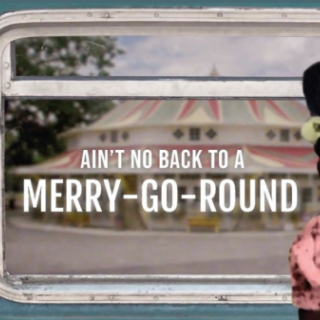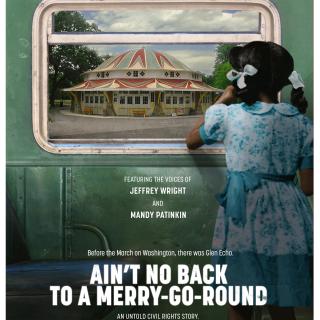Advertisement
It’s 1988! England and Margaret Thatcher’s conservative government is about to pass a law stigmatizing gays and lesbians, forcing Jean (Rosy McEwen), a gym teacher, to live a double life. As pressure mounts from all sides, the arrival of a new student catalyzes a crisis that will challenge Jean to her core.
Jean coaches the netball team, itself a riot of burgeoning teen emotion and conflict. She's quite middle class. She's still in touch with her family. Likewise, she does not always behave in a morally exemplary fashion. As news stories proliferate about the impact of Section 28. Tory ministers pontificating on moral decay, activists storming the House of Lords, Jean is hyper-aware of every glance and murmur in her direction. She makes bad decisions; but she's so unaware.
What happens over ninety minutes in the story, the evolution we see her go through, might have happened over the course of ten years to many women. Her relationship with girlfriend Viv (Kerrie Hayes), meanwhile, presents the opposite challenge, for Viv is an out and proud lesbian with a crew of similarly assertive friends. Viv is just hysterically funny, and soft and warm, and all the things we imagine Viv to be. Obviously it's what’s partly at stake in the story, and that Section 28 had the biggest impact on her love life. To them, the secrecy still practiced by the woman they call “Baby Jean” acts to extend the oppression they've thrown off. For Jean, this is the one piece of pure happiness in her life, and it's so sacred to her.
The stakes for that relationship have to be so high, and so real, to raise the stakes of the rest of the film. Because if she can't be herself in her relationship, nothing else really matters. And what comes between them is not their fault. The society that they have been born into gets in the way of this very pure relationship that they've, and it's neither of their fault. It's societal pressures that force them to fight politically. It's a way to escape, going for a cigarette. She's a bird that needs to always be able to flee if she can, and it feels like smoking is just an excuse to do that. Jean does things that viewers may dislike or judge her for. The catalyst for change is the arrival at Jean’s school of a new pupil, Lois (Lucy Halliday), raw, vulnerable, and instinctively connected to Jean as soon as they meet.
When Lois begins to frequent the lesbian bar that's Jean’s refuge, the boundaries between Jean’s worlds collapse, and she finds herself dangerously desperate to rebuild them. Drawing on meticulous research among lesbians who experienced the impact of Section 28, the film constructs a drama at once confronting and intimate, which renders palpably real the dilemma of a fictional woman whilst pulsing with the hidden pain of countless real lives.
In 1988, enraged by Thatcher’s proposed law Section 28, a group of lesbians abseiled from the gallery of the House of Lords onto the floor, demanding protection of the rights of lesbian and gay people in the UK. The culture of silence propagated by this law, which prohibited school s and local governments from “promoting” homosexuality, had devastating effects on our generation. For many in the UK, the story of Section 28 and its eventual repeal is a triumphant memory of unity and activism.
Resistance to the conservative government’s attempt to prohibit the promotion of homosexuality as a pretended family relationship was the catalyst for an assertion of gay pride that ultimately helped to sweep away historic prejudices. So blatant was the attack and so widespread the reaction against it that the bill might be said to have ultimately achieved the opposite of its original aim. That took time, however, and tremendous sacrifice.
Behind the political wrangling, the public demonstrations and the celebrity opposition were thousands of ordinary people whose private lives were suddenly deemed a danger, particularly to children. Children who need to be taught to respect traditional moral values are being taught that they have an inalienable right to be gay. All of those children are being cheated of a sound start in life.
What if you're a teacher, devoted above all else to providing kids with a sound start in life, who also happened to be gay? This is the starting point of the film, not the activist community who immediately and loudly confronted this attack on their basic right to be who they're, but a woman who has worked hard to compartmentalize her life, keeping her girlfriend decisively separate from her family and her personal story a mystery to her workmates and pupils. "Blue Jean" allows us to experience just how personal the political can become.
How far we have come, when insidious, homophobic laws like this still exist across the globe. The legacy of Section 28 is alive and well, and it’s just one example of horrific institutionalized homophobia that LGBTQ+ communities have to deal with on a day-to-day basis. The choice whether to correct the taxi driver who has just assumed your girlfriend is your sister. The choice of words when your kid’s friend from school has just asked which one of you is the mummy. The choice whether to wear your queerness boldly, in the way you dress or cut your hair, or to disguise it, in favor of an easier ride. It was always the plan to make a portrait piece about one woman grappling with her identity, as opposed to a big political drama about the law itself.
The film is interested in the kind of physicality of it, how it would be different for a teacher whose job is concerned with bodies, how that might bring extra pressures. Putting their lives under a microscope, instead of focusing on the law itself and the bigger political aspect of it. We always want to interrogate one person's life and decisions. So while historical narratives focus on activists, Jean represents the people who are not able or willing to raise their voices in protest. That's where the women who frequent the bar and live in the Co-op originated from. The film wants to show that someone like Jean might want to be involved in that side of things, but because of the public facing aspect of her job, she wasn't able to. We know that lesbians are regarded as particularly troubling or subversive. And yet sexless, at the same time.
We see a lot of girl meets girl romances, and stories about wanting and hurting and not being able to have something, but we don't feel like you really ever see the other side: a functioning relationship. There's an extra level of silence around gay women. We feel that it's a very specific experience: that whatever the outside world makes of you, in that world, you're not quite gay enough! You’re too new; you’re too late! We have so much language now to talk about internalized homophobia, and microaggressions, all that stuff is in the collective consciousness now, but at the time, they just didn't know. Gay people often kind of grow up hating themselves, even if they're not aware of it. That feeling of pretending to be something when you're feeling a different way, it's probably something that we all feel in life.
Opens June 30 at Gateway







